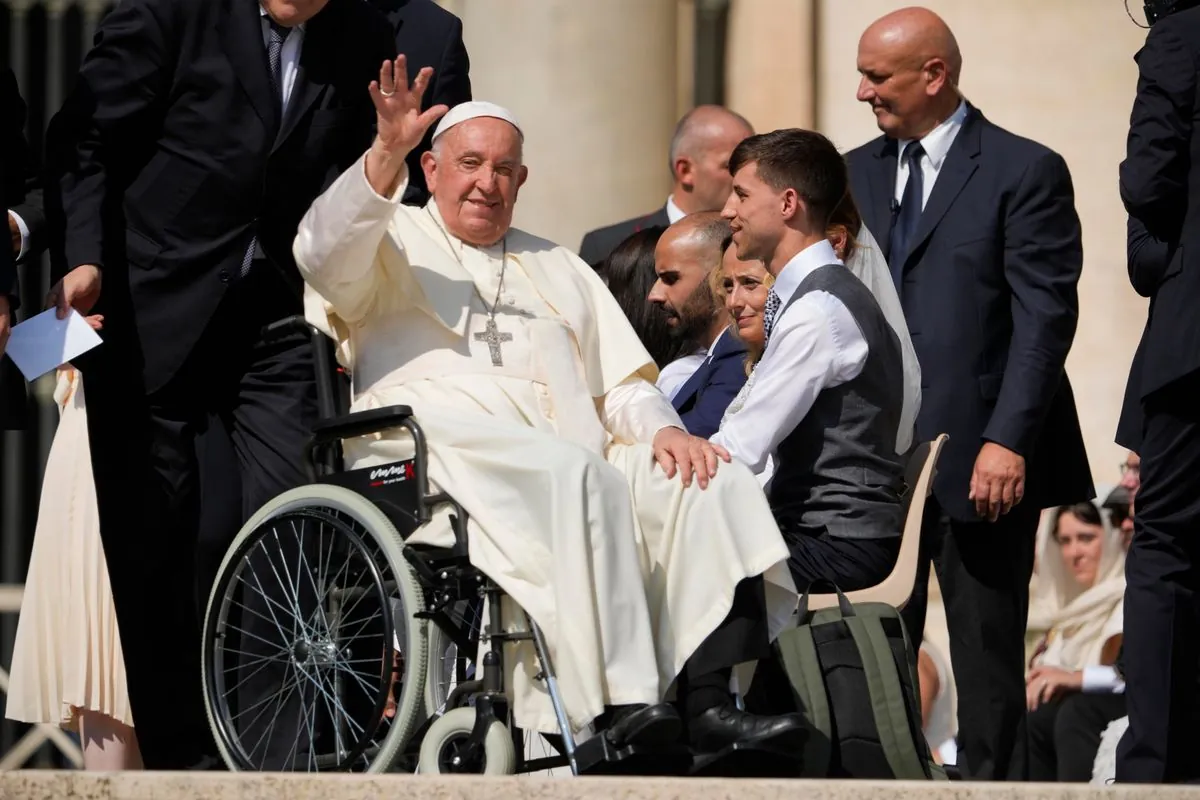Pope Francis has embarked on a significant visit to East Timor, arriving in the capital city of Dili on September 9, 2024. This journey marks a crucial moment for the predominantly Catholic nation, which gained independence 22 years ago after a tumultuous period under Indonesian rule.
East Timor, officially known as the Democratic Republic of Timor-Leste, is one of the world's youngest and poorest countries. The papal visit aims to encourage the nation's ongoing recovery from its troubled past and celebrate its development since gaining sovereignty.
The Pope's arrival comes at a time when East Timor is reflecting on its journey to independence. It has been 25 years since the UN-backed referendum that paved the way for the country's autonomy from Indonesia. This milestone serves as a reminder of the nation's resilience and determination to forge its own path.
"Our great hope is that he may come to consolidate the fraternity, the national unity, peace and development for this new country."
The atmosphere surrounding Pope Francis' visit starkly contrasts with the previous papal visit by St. John Paul II in 1989. At that time, East Timor was still under Indonesian occupation, struggling for its freedom. The intervening years have seen significant changes, with the country now standing as a sovereign nation facing the challenges of development and nation-building.
East Timor's path to independence was marked by conflict and loss. An estimated 200,000 people lost their lives during the 24 years of Indonesian rule. The country's struggle for freedom was supported by key figures such as Bishop Carlos Ximenes Belo and José Ramos-Horta, who jointly received the Nobel Peace Prize in 1996 for their efforts to find a peaceful solution to the conflict.
However, the legacy of Bishop Belo has been complicated by recent revelations. In 2022, the Vatican acknowledged that it had secretly sanctioned Belo in 2020 for sexually abusing young boys. These sanctions, which include limitations on his movements and ministry, have cast a shadow over his previously celebrated role in the country's fight for independence.
Despite these controversies, many East Timorese continue to hold Bishop Belo in high regard, reflecting the complex interplay of national identity, historical memory, and contemporary realities.
As Pope Francis meets with Timorese leaders and diplomats, he faces the challenge of addressing both the country's painful past and its aspirations for the future. East Timor, with its young population and rich cultural heritage, stands at a crossroads, seeking to overcome poverty and build a sustainable future.
The papal visit serves as a reminder of the Catholic Church's significant role in East Timorese society and history. As the only sovereign state in Asia with a Catholic majority, the country's religious identity has been a source of strength and unity through challenging times.
As East Timor continues its journey of national development, the hope is that Pope Francis' visit will inspire unity, reconciliation, and renewed commitment to building a prosperous and peaceful future for all its citizens.
